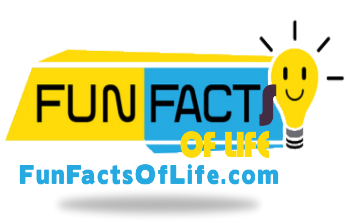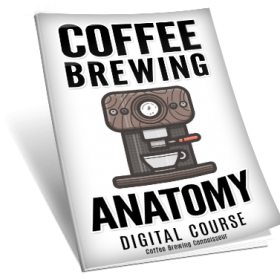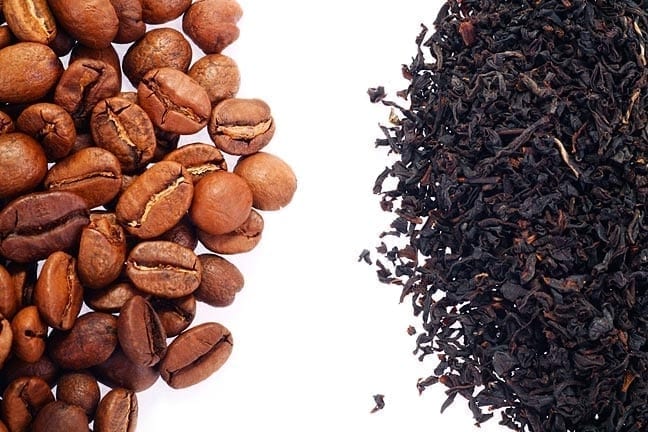If you are currently following a ketogenic diet, also called keto, then you have probably…

The Good And Bad News About Coffee And Your Health
Health research on coffee swings back and forth between good and bad news more frequently than almost any other topic. When you hear about one study claiming health benefits while another harps on a list of negatives, it’s easy to get jaded and stop paying attention. To bring some focus, here’s a summary of both good and bad findings from a selection of coffee studies, with some perspective about why these findings are worth the time.
The good news: Coffee seems to help prevent an early demise.
Let’s start with the big one: the latest round of research suggests that drinking a few cups of coffee a day is associated with a decreased chance of early death from several causes. Important to note, none of these studies prove that coffee extends life. These are observational studies that found correlations between drinking between two-to-four cups a day and lower mortality. The reasons why are debatable. It could be coffee’s high concentration of antioxidants providing cells protection from oxidative stress and inflammation, or it could be reasons that haven’t been uncovered yet. Whatever the reasons, enough of these studies have found similar enough results that they’re worth the attention.
The bad news: Coffee can cause insomnia.
Another health topic that gets a fair amount of press is sleep, and when it comes to sleeping well, caffeinated coffee isn’t our friend. At least not if you’re drinking it later in the day. The rule of thumb is to avoid anything with caffeine after about 2 pm, because it’s a deceptively enduring chemical. The half life of caffeine is about 6 hours, which means it takes 6 hours to eliminate about half of the chemical from your system. Hence, drinking coffee later in the day is strongly linked to insomnia, which is in turn linked to a list of health negatives. Keep the coffee for the morning unless you’re drinking decaf, but even then make sure your decaf is truly decaffeinated (because often it isn’t).
The good news: Coffee may preserve your liver.
A recent study found a correlation between drinking both coffee and tea and a healthier liver. Again, this was an observation across a span of data and not cause-and-effect proof, but it’s a decently strong correlation. The reason why isn’t well understood, but both coffee and tea contain a wealth of compounds with tissue-protecting effects, and the liver—the body’s central filtration system—may benefit from these compounds charging through our bloodstream.
The bad news: Coffee can trigger anxiety.
It’s a little unfair to blame coffee for this, since anything with enough caffeine could do it, but coffee is the way most of us get our daily jolt, and caffeine is propane gas for those suffering from anxiety. The effect is twofold: there’s the immediate trigger, and then there’s the longer-term, slower-burn trigger. The second effect is of particular concern because it hangs around for as long as caffeine remains in your system (which is more or less all the time if you’re a daily coffee drinker). Caffeine seems to decrease levels of GABA, the neurotransmitter that helps regulate anxiety, and it amplifies the effects of our two main stress hormones, cortisol and epinephrine. Bottom line: anyone with an anxiety condition should sip judiciously and infrequently.
The good news: Coffee may provide protection against diabetes.
Another finding in the “coffee protects…” category shows that daily consumption could decrease the risk of developing type 2 diabetes. It’s hard to identify exactly why, but the compounds in coffee seem to protect cells from the accumulation of toxic proteins that play a role in the onset of diabetes.
The bad news: Coffee may induce your craving for sweets.
A new study revealed that caffeine changes our taste perception, making sweet things seem less sweet. The twist is that this subtle change may result in craving more sweets. This finding explains why coffee goes so well with donoughts and pastries, and serves as a caution light when you’re sipping hot java with a plate of baked goods in front of you.
The good news: Coffee may prevent dementia.
A few studies suggest that three or more cups a day may ward off cognitive decline leading to dementia. The reason in this case could be caffeine itself, but more likely it’s caffeine working with coffee’s host of other compounds (like polyphenols), because comparable results weren’t found with the same amount of tea. A notable study in this category found that coffee may even delay the onset of Alzheimer’s; the reason may be similar to why coffee protects against diabetes, by preventing the accumulation of toxic proteins.
The bad news: Coffee can make GERD worse.
If you suffer from gastroesophageal reflux disease (GERD), it’s a good idea to avoid coffee or at least limit your intake. Coffee stimulates the secretion of gastric acid, which can bring on the heart burn even if you don’t have a bad case of GERD, and if you do, it’s going to be much worse.
The good news: Coffee may improve memory.
A number of studies have linked coffee with improved memory, mainly because caffeine is a mental acuity enhancer. And the really good news is that this effect may not only be short-term; some research suggests that it lasts much longer.
And some bonus good news: Coffee can make you happy.
Let’s end with one that’s both scientifically valid and anecdotally true – a major reason why we like to drink coffee is that it’s a potent psychoactive brain stimulant. Drinking it elevates mood and bolsters energy, at least for a little while, and it doesn’t hurt that it’s also delicious. In other words, drinking it makes us feel happy. Do we really need a better reason than that?




